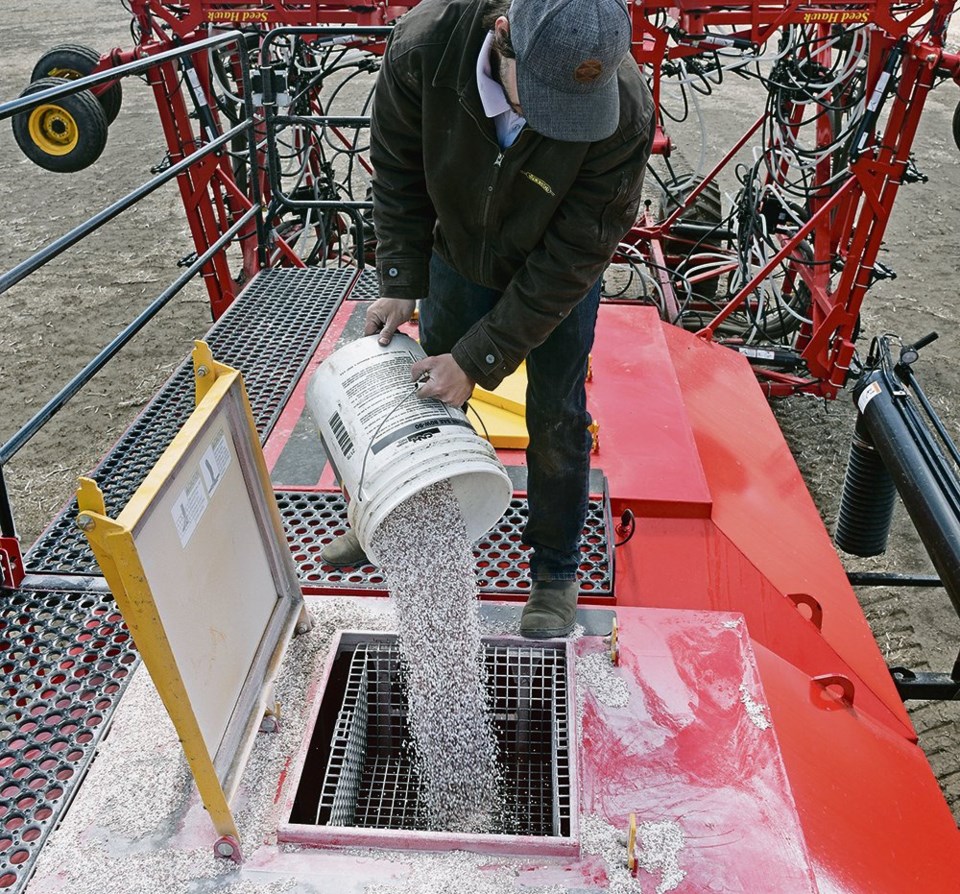WESTERN PRODUCER — The ripple effects of Russia’s war in Ukraine are starting to be felt in Canada.
Energy prices, commodity markets and fertilizer costs, which were already rising before Russia’s invasion, are expected to soar.
Alberta is trying to stem rising energy prices by cutting the provincial fuel tax starting next month but it might be just a drop in the bucket compared to the tides driving increasing input costs across the agricultural sector.
The March 7 announcement by Alberta Premier Jason Kenney will see retail prices potentially drop by 13 cents a litre, four cents for marked fuel.
But Alberta energy analyst David Yager said agriculture really needs a complete roll back of taxes and emission reduction targets.
“Forty percent of the world is fed by nitrogen-based fertilizer, which comes from coal and natural gas, and everything else to do with agriculture is diesel-powered and requires refrigeration,” said Yager.
Platitudes of support for Ukraine do not address the shortfall expected to happen when 30 percent of world wheat production is cut off because of Russia’s invasion of Ukraine, he said.
“The humanitarian thing to do is to cut all taxes on food input costs as an emergency measure,” said Yager. “That would suspend the carbon tax increase on April 1, roll back the carbon tax on agricultural inputs, roll back the PST and GST — excise tax — and see if we can’t grow more food than we would have otherwise.”
Yager stressed these would be only temporary emergency measures to counter the low grain inventories caused by last year’s drought and the spike in fertilizer costs and to make up world food production lost by “Ukrainian farmers fighting for their lives instead of their crops.”
Agricultural economics professor Jill Hobbs from the University of Saskatchewan said a wholesale cutting of taxes in the short term might serve to reduce long-term policy objectives during a time of record prices for crops.
But she said the situation caused by the war in Ukraine has caused a change in the world’s view of food production and is causing massive disruptions in markets.
“It’s a mess,” she said. “This is seismic on a whole bunch of perspectives.”
The effects of rising energy costs should be tempered by the ability to receive the benefits of higher grain prices, “which is fine as long as you have a crop to sell.”
Producers should take extra care in the production contracts they sign this year and take a good look at how to hedge against negative impacts in a market that has been riddled with risks.
With several countries unable to count on Ukraine or Russia as their main wheat suppliers, it could alter cropping decisions in Western Canada, she said.
“You are going to find these countries scrambling for food supply,” said Hobbs, adding that it will likely result in changes in where Canadian crops will be exported and add to transportation costs.
Like Yager, Sylvain Charlebois, director of the agri-food analytics lab at Dalhousie University in Nova Scotia, highlighted the issues surrounding access to affordable fertilizer with Russia as a key source for much of the world’s supply.
As well, Black Sea ports, focal points in the fighting, are almost completely shuttered, compounding the difficulties.
“With the Ukraine war, things have gotten much worse,” said Charlebois. “Farmers will have to decide how to increase yields in all sorts of ways and talk to their consultants as much as possible. That’s going to be the biggest challenge.”
However, moisture levels in Western Canada have been positive in many areas so far, and if growing conditions prove favourable this year, farmers should do well.
“Prices are set to motivate farmers right now and it would be a shame to not have the proper tools to take advantage of interesting market conditions for North American farmers,” he said.
Labour disputes, such as those at Canadian Pacific Railway, could hobble the sector even if the weather and market conditions hold, said Charlebois.
“The world doesn’t need this right now. It’s an unnecessary inconvenience,” he said. “Global food security is at stake here. This is really how dire the situation is. North America needs to step up, it needs to produce more.”
The Food and Agricultural Organization of the United Nations is calling for just that in its recent report on the war in Ukraine.
“Every effort should be made to keep international trade in food and fertilizers open to meet domestic and global demand,” read the FAO report’s policy recommendations. “Supply chains should be kept fully operational, including the protection of standing crops, livestock, food processing infrastructure, and all logistical systems.”




